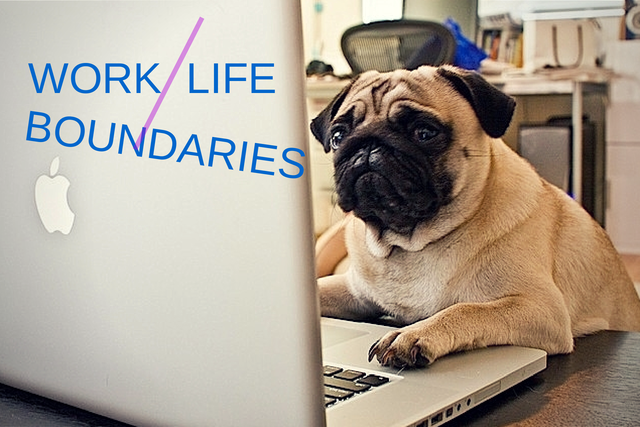Humans aren’t made to work around the clock — but our working culture refuses to acknowledge this. We’re still checking our email before we go to bed, not taking breaks and vacations, and burning out by burning the candle at both ends.
Even when we aren’t fuzzy from fatigue, we can understand that working long hours has not just diminishing but unhealthy returns. But actually changing our behavior is tough. Employers still don’t trust the employees they can’t see and a long history of work where more hours meant more output seems to have forged a persistent guilt about how we spend our time.
Since the key to being happier and more productive is to not feel like you’re working all the time, one of the most obvious fixes is to set some time limitations. The weird thing is that one of the best ways to do this is to spend more time thinking about work.
The Best Way to Detach from Work
With the combined rise of knowledge work and technology that never sleeps — the workday lasts far beyond the traditional bounds of 9 to 5. Now, leaving work doesn’t mean that you’ve actually set any boundaries.
You have to be able to mentally detach from your workday in order to turn your full attention to yourself and the people that matter to you. Otherwise, guilt, frustration, and other nagging thoughts about work can follow you home and hog mental space while you try to relax and reenergize for the next day.
In a study led by researchers Joyce Bono and Theresa Glomb, people who spent just 10 minutes at the end of the day to write about three personal or work-related things that had gone well and why felt an increased sense of work detachment — a “psychological detachment, in that employees are able to switch off thoughts of work when they leave.” Not only were people more able to mentally set boundaries around their working hours, the practice of daily positive reflection also resulted in a 15% decline in stress levels, fatigue, and difficulty focusing.
Pipedrive’s cofounder Martin Henk told me that recording what he got done at the end of the day gave him the sense that his work was done, allowing him to enjoy the rest of his time with a clear conscience. “Even when I have friends over Friday night for a social gathering, I still have something in the back of my head.” He would think, “‘Just a second, I’ll put down my dones — and the work week is over.”
Work Diaries Are More Than a Mundane Routine
Rituals have a real impact on how people think, feel, and act — and their repetition helps make them stick. As behavioral scientists Francesca Gino and Michael Norton explain in Scientific American, rituals work to reduce anxiety and stress by “inducing a feeling of being back in control.”
When you think of keeping a work diary as a symbolic way to shut off the lights and close the office door to signify that your workday is done, it becomes a satisfying ritual that offers a valuable sense of control and healthy state of mind.
We often treat the terms “ritual” and “routine” as interchangeable due to their repetitive natures, but they don’t quite mean the same thing. Rituals involve a sense of meaning and attention that routines don’t. Shala Burroughs, co-founder of CloudPeeps, hits upon this distinction when describing how, amidst transition and still-swirling change, she wanted not the mechanical sameness of routine to anchor herself but a meaningful ritual:
a procedure that is the same, week after week, that provides a place of peace and familiarity in the face of complete chaos…. Evolution and routine cannot exist in the same room.
So while people point to the productivity benefits of automating certain behaviors into routines and habits, think of the practice of keeping a work diary as a ritual that may be recurring but not done without thought — a meaningful act of reflection and mindfulness.
* * * * *
The way to do your best work and increase your happiness is simple: don’t work around the clock.
Keeping a work journal not only helps celebrate your wins and gain meaning from your day but also allows you to manage your psychology so that you can focus on the stuff that matters — inside and outside of work. Let this ritual of reflection create a sense of accomplishment, and thus, peace — allowing you to enjoy the rest of your day, unburdened by the guilt that you should be working all time.
Photo: Akane Yamada (adapted)

